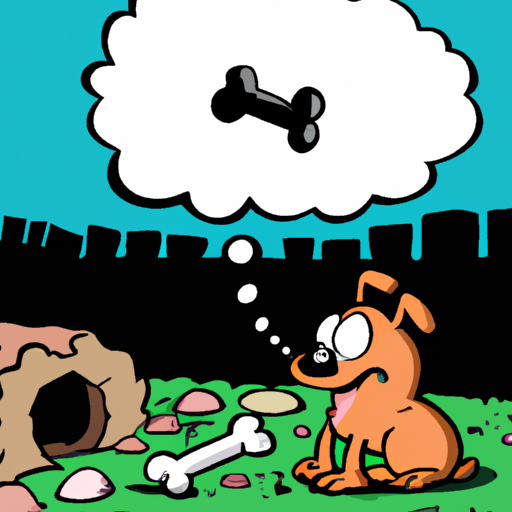Understanding Your Dog’s Instincts
You may often find your dog digging up your garden, leaving unsightly holes and piles of dirt everywhere. This behavior is not just a sign of mischief or disobedience – it’s deeply rooted in a dog’s instincts. Dogs evolved as scavengers and hunters, and digging was an essential survival skill for finding food and creating safe, comfortable dens. Today, your dog’s digging might be a way of expressing these instinctual behaviors, even if they’re well-fed and have a cozy bed to sleep in.
The Role of Breeds and Genetics
Every dog breed has unique characteristics and behaviors shaped by centuries of selective breeding. Some breeds, like Terriers, Dachshunds, and Beagles, were specifically bred for their digging abilities. These dogs are natural ‘diggers’ and may dig more often than other breeds. If you have one of these breeds, you might notice them digging more than others. However, remember that not all dogs of these breeds will necessarily be diggers – each dog is an individual.
| Breed | Bred for |
|---|---|
| Terriers | Hunting rodents |
| Dachshunds | Digging out burrows |
| Beagles | Tracking scents |
The Importance of Enrichment and Exercise
Dogs need mental stimulation and physical exercise to stay happy and healthy. Digging can be a form of self-entertainment and exercise for dogs, especially if they’re left alone for long periods. If your dog is digging out of boredom, you might consider:
- Providing more toys and activities
- Increasing their exercise routine
-
Training them in new skills
-
Interactive toys can keep your dog entertained when they’re alone.
- Daily walks, games of fetch, or agility training can help burn off excess energy.
- Learning new commands or tricks can provide mental stimulation.
Digging as a Coping Mechanism
Sometimes, dogs dig to cope with stress or anxiety. They may dig when they’re scared, when they’re separated from you, or when they’re exposed to loud noises like fireworks or thunderstorms. If you think your dog is digging due to anxiety, it’s important to find ways to help them feel safe and secure. This could include:
- Providing a safe space for them to retreat to
- Using calming aids like pheromone diffusers or anxiety wraps
- Working with a professional dog trainer or behaviorist
How to Manage Your Dog’s Digging
Even though digging is a natural behavior for dogs, it can be problematic if it’s causing damage to your garden or creating a safety risk. Here are some strategies you can use to manage your dog’s digging:
- Create a designated digging area in your yard.
- Use positive reinforcement to encourage your dog to use this area.
- Discourage digging in other areas by covering them with chicken wire or rocks.
Frequently Asked Questions
Q: Why is my dog digging in the same spot?
A: Dogs might dig in the same spot due to various reasons such as burying food, smelling a particular scent, or feeling comfortable in that area.
Q: How can I stop my dog from digging up my garden?
A: You can try creating a designated digging area, using deterrents like chicken wire, or increasing your dog’s physical and mental stimulation.
Q: Is it bad if my dog digs a lot?
A: Digging is a natural behavior for dogs, but if it’s excessive or causing problems, you might want to consult with a professional dog trainer or behaviorist.
Q: Do all dogs like to dig?
A: Not all dogs will dig. Some breeds are more prone to digging due to their genetics and what they were originally bred for.



